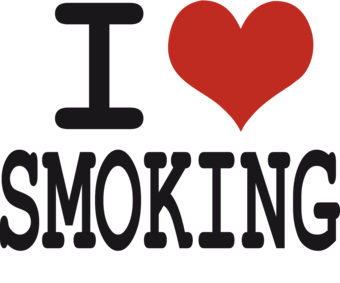Cameras to be deployed across island to detect illegal smoking
Cameras deployed in areas where smoking is prevalent but barred will record images of the person as well as the date and time.
PUBLISHED
JUL 9, 2018, 5:05 PM SGT
UPDATED
JUL 9, 2018, 9:52 PM
Khoe Wei Jun
SINGAPORE - Taking a puff in non-smoking areas without getting caught is about to get a lot harder.
The National Environmental Agency (NEA) intends to deploy surveillance cameras around the island with high definition thermal sensors to help detect smoking in prohibited areas.
Smoking is now prohibited in an estimated 32,000 premises and locations, such as entertainment outlets, shopping malls, office premises, hospitals, schools, cinemas, bus-stops, covered walkways, lift lobbies, stairwells and entrances to buildings.
Other unhygienic acts like spitting and littering will also be captured by the initiative, which will be a first here.
Cameras deployed in areas where smoking is prevalent but barred will record images of the person as well as the date and time.
The tamper-proof thermal cameras, which can detect a person holding a lighted cigarette during the day or night, will be placed discreetly on rooftops, in common corridors and staircases of residential buildings, multi-storey carparks and other locations.
The thermal cameras will focus only on the common corridors, lift lobbies or staircase landings, areas where smoking is prohibited.
NEA said it will be mindful of the privacy of members of the public.
It wants the contractor to carry out an estimated 140 camera deployments a year.
NEA said it will continue to enforce action against smokers who break the law. For the deployment of cameras, there are strict protocols governing the viewing of the footage and only authorised NEA staff and the vendor may handle and view the video footage for official purposes.
Cameras are just the latest in a series of government moves that have been gradually extending the smoking ban to more public places since the 1970s to safeguards others from harmful second-hand smoke.
In 2013, curbs were imposed for common spaces in residential buildings such as lift lobbies and stairwells as well as bus stops. The ban was extended to reservoirs and parks in public and private housing estates in 2016.
Last October smoking was outlawed at the campus areas of public universities and other education institutions. It was also prohibited in private-hire cars and buses.
By the end of this year, smoking will be barred in the already established No Smoking Zone of the Orchard Road precinct. The delay is to give businesses more time to set up designated smoking areas.
As smoking curbs are extended, the total number of offenders has increased. The NEA issued about 22,000 tickets last year to people smoking at prohibited areas, compared with 19,000 in 2016.
People caught smoking in any prohibited area may be fined $200, or up to $1,000 if convicted in court.
Members of the public can report infringements via the NEA website or MyENV app.
Cameras deployed in areas where smoking is prevalent but barred will record images of the person as well as the date and time.
PUBLISHED
JUL 9, 2018, 5:05 PM SGT
UPDATED
JUL 9, 2018, 9:52 PM
Khoe Wei Jun
SINGAPORE - Taking a puff in non-smoking areas without getting caught is about to get a lot harder.
The National Environmental Agency (NEA) intends to deploy surveillance cameras around the island with high definition thermal sensors to help detect smoking in prohibited areas.
Smoking is now prohibited in an estimated 32,000 premises and locations, such as entertainment outlets, shopping malls, office premises, hospitals, schools, cinemas, bus-stops, covered walkways, lift lobbies, stairwells and entrances to buildings.
Other unhygienic acts like spitting and littering will also be captured by the initiative, which will be a first here.
Cameras deployed in areas where smoking is prevalent but barred will record images of the person as well as the date and time.
The tamper-proof thermal cameras, which can detect a person holding a lighted cigarette during the day or night, will be placed discreetly on rooftops, in common corridors and staircases of residential buildings, multi-storey carparks and other locations.
The thermal cameras will focus only on the common corridors, lift lobbies or staircase landings, areas where smoking is prohibited.
NEA said it will be mindful of the privacy of members of the public.
It wants the contractor to carry out an estimated 140 camera deployments a year.
NEA said it will continue to enforce action against smokers who break the law. For the deployment of cameras, there are strict protocols governing the viewing of the footage and only authorised NEA staff and the vendor may handle and view the video footage for official purposes.
Cameras are just the latest in a series of government moves that have been gradually extending the smoking ban to more public places since the 1970s to safeguards others from harmful second-hand smoke.
In 2013, curbs were imposed for common spaces in residential buildings such as lift lobbies and stairwells as well as bus stops. The ban was extended to reservoirs and parks in public and private housing estates in 2016.
Last October smoking was outlawed at the campus areas of public universities and other education institutions. It was also prohibited in private-hire cars and buses.
By the end of this year, smoking will be barred in the already established No Smoking Zone of the Orchard Road precinct. The delay is to give businesses more time to set up designated smoking areas.
As smoking curbs are extended, the total number of offenders has increased. The NEA issued about 22,000 tickets last year to people smoking at prohibited areas, compared with 19,000 in 2016.
People caught smoking in any prohibited area may be fined $200, or up to $1,000 if convicted in court.
Members of the public can report infringements via the NEA website or MyENV app.


